Guest blogger Edith Makra says public transit is vital for climate change adaptation
October 7, 2021
October 7, 2021
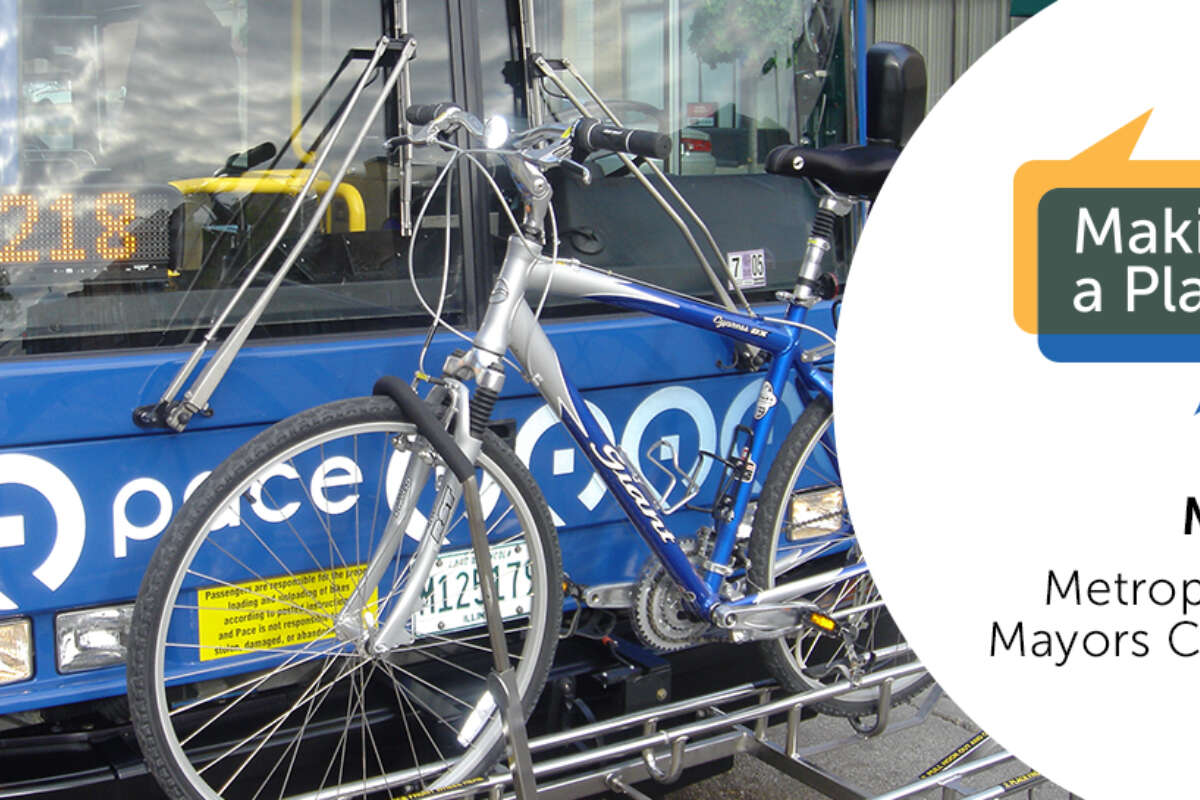
 The RTA is currently developing the 2023 Regional Transit Strategic Plan for Northeastern Illinois at a time when the challenges and opportunities facing our region’s transit system have never been greater. Making a Plan represents our effort to engage and collaborate with close stakeholders and the public. We have invited a group of transit users and thinkers to answer a set of questions for an occasional guest series on Connections, the RTA blog. The views represented in this series are not those of the RTA, but they are views we want to hear and have heard. If you have thoughts about this post, the strategic plan, or would like to participate by contributing a guest blog post, please email communications@rtchicago.org and subscribe to our newsletter to learn more.
The RTA is currently developing the 2023 Regional Transit Strategic Plan for Northeastern Illinois at a time when the challenges and opportunities facing our region’s transit system have never been greater. Making a Plan represents our effort to engage and collaborate with close stakeholders and the public. We have invited a group of transit users and thinkers to answer a set of questions for an occasional guest series on Connections, the RTA blog. The views represented in this series are not those of the RTA, but they are views we want to hear and have heard. If you have thoughts about this post, the strategic plan, or would like to participate by contributing a guest blog post, please email communications@rtchicago.org and subscribe to our newsletter to learn more.
Name: Edith Makra
Organization or Affiliation: Director of Environmental Initiatives
Role/Responsibilities: Metropolitan Mayors Caucus
Favorite transit mode or station?
I’m a Metra rider and recently moved close to the Winfield station. I love that I can walk or bike to my station and walk to my office downtown.
Why are you passionate about transit?
Transit maintains a connected community with shared space, shared journeys, and a shared interest in moving safely about our beautiful region. I recently completed the 2021 Climate Action Plan for the Chicago Region which demonstrated how vital public transit is to reducing greenhouse gas emissions and adapting to climate change.
What do you see as the greatest challenges and opportunities for the Chicago region’s transit system over the next ten years? What is the biggest barrier to realizing these opportunities?
Getting riders back post-pandemic will be a challenge. Once we can get past the surges and restore confidence in gathering and re-opening offices, we can get back on transit. Beyond that, a system with the safety, reliability and convenience to makes transit competitive will be critical to the vibrancy of our region.
Tell us your ideas for improving access to transit within the Chicago region and what policy levers or partnerships might be required to make the changes you envision?
I think municipalities, major employers and intuitions can be critical partners to improving access to transit. Safe, attractive and sustainable stations not only anchor suburban business districts, they also boost and sustain ridership. Municipalities have such an important role in providing access to Metra with parking, but also with bicycle and pedestrian connections. Employers should incentivize and support transit use and share in developing and maintaining welcoming stations and convenient services to connect to transit.
Looking ahead, what future force of change has the greatest potential to transform or disrupt our region’s transit system?
Weather extremes caused by climate change are the greatest threat to our transit system. Our systems need to be resilient, and we don’t have the luxury of time to plan for adaptation. We’ve already seen flooding and the extreme cold of the polar vortex stress our transit system in recent years. This year we’ve seen transit systems buckle under flash floods in New York and China. Not only do we need to build in redundancy and contingencies in plans and operations, we need to adapt our transit infrastructure to withstand new climate predictions.
Decades of underfunding have left the transit system in a constant state of austerity. Tradeoffs are almost always necessary when making decisions about improvement and expansion of the system. How do you recommend investing in the system to achieve the greatest regional impact?
No doubt substantial and sustained investment is needed across the transit system, and I support the Priority Projects identified in the Invest in Transit Plan. I do think that all new rolling stock should use clean, alternate fuels. Because of the long life and high mileage of trains, buses and vehicles, the fuel choice will affect emissions for decades. Diesel is no longer an acceptable fuel because of pollution and greenhouse gas emissions. All vans and vehicles should be electric and those are readily available and financially viable. Buses are probably the best candidates for early transition to electric power. However, electric rail cars shouldn’t be far behind.
What can we learn from efforts to advance equity in other public spheres and apply to transit to make a tangible difference?
Again, climate change will challenge our ability to provide equitable public transportation in the region. As extreme heat and flooding events occur, we must assure vulnerable riders have safe access to reliable transit. The approach needs to be holistic, however. Efforts to make communities safe and livable should complement investment in weather-safe transit shelters and walkable tree-shaded pedestrian routes to build strong neighborhoods with strong connections to transit.
Subscribe to our Newsletter
Related Articles
 New project management oversight report highlights more than 100 projects representing $8.2 billion in capital investments
New project management oversight report highlights more than 100 projects representing $8.2 billion in capital investments
The RTA’s Project Management Oversight (PMO) program ensures that the Service Boards—CTA, Metra, and Pace—are spending capital funds and managing their infra...
June 27, 2024 Transportation Tuesday recap: Improving and expanding the transit system strategically
Transportation Tuesday recap: Improving and expanding the transit system strategically
With last year’s adoption of Transit is the Answer came 15 new evaluation metrics that comprise a strategy for evaluating and selecting capital projects. Now...
May 30, 2024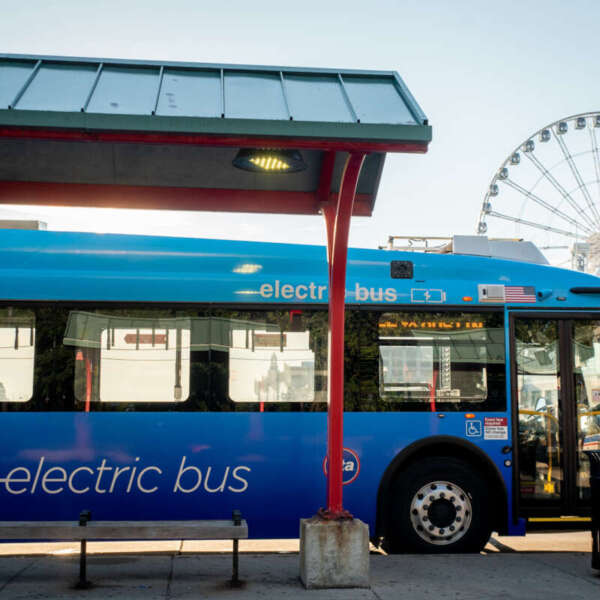 Transit is the answer to meeting Illinois’ climate goals
Transit is the answer to meeting Illinois’ climate goals
As we celebrate Earth Day 2024, the RTA is announcing Transforming Transit —the agency’s commitment to lead the Chicago region’s transit system into the futu...
April 18, 2024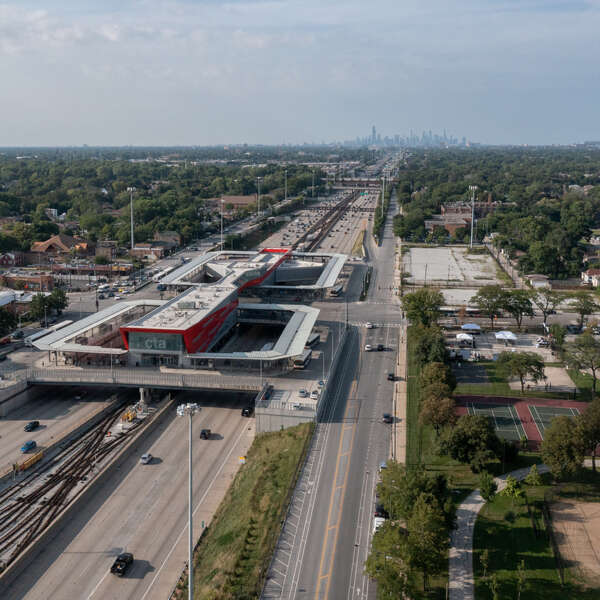 Three years into the Infrastructure Investment and Jobs Act, Chicago’s transit system is winning competitive grants and advancing critical projects
Three years into the Infrastructure Investment and Jobs Act, Chicago’s transit system is winning competitive grants and advancing critical projects
The Infrastructure Investment and Jobs Act (IIJA), passed in 2021, represented a historic level of federal investment for shoring up the nation’s infrastruct...
March 12, 2024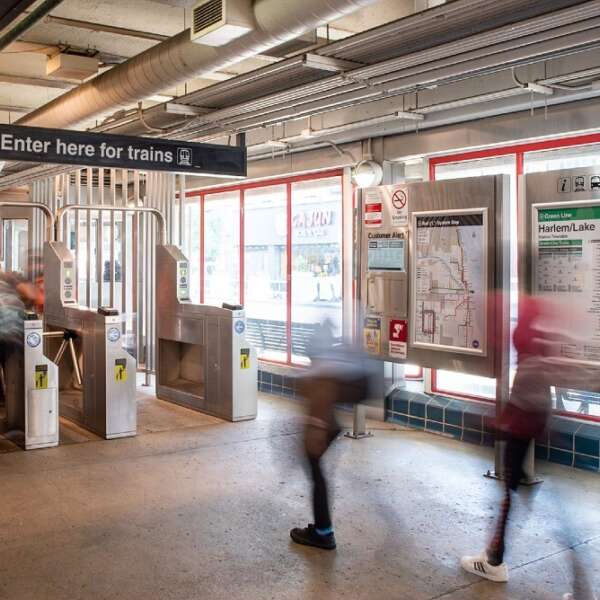 Why fully funding paratransit service and reduced fare programs is key to closing the transit budget gap
Why fully funding paratransit service and reduced fare programs is key to closing the transit budget gap
With transit facing a fiscal cliff in the coming years, fully funding critical programs like ADA paratransit service and free and reduced fare programs is on...
February 29, 2024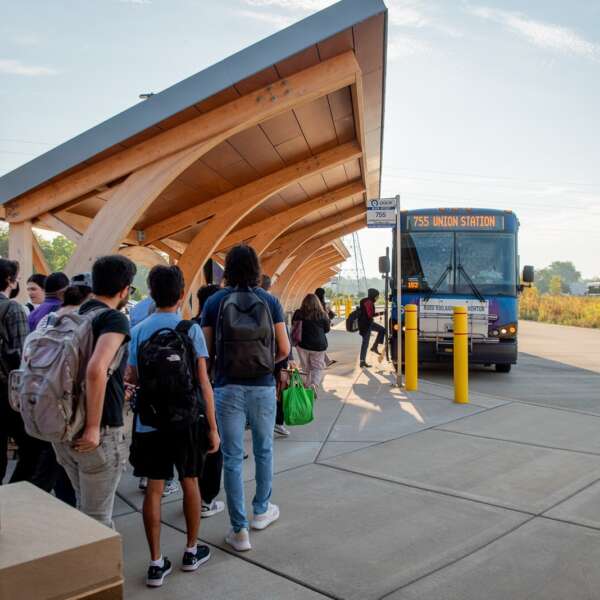 RTA releases semi-annual project management oversight report highlighting more than 100 capital projects
RTA releases semi-annual project management oversight report highlighting more than 100 capital projects
Under its Project Management Oversight (PMO) program, the RTA ensures that the Service Boards—CTA, Metra, and Pace—are spending capital funds and managing th...
January 3, 2024